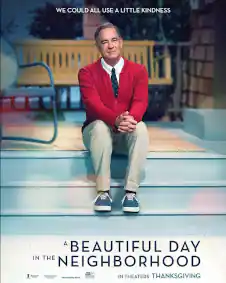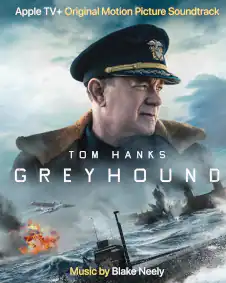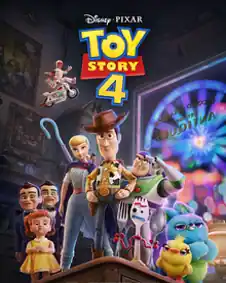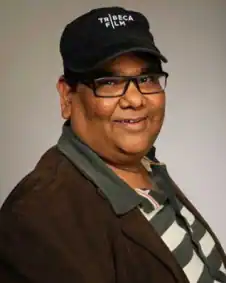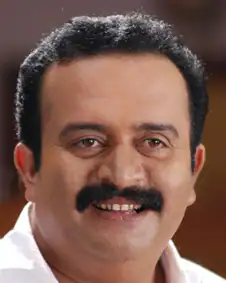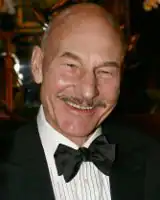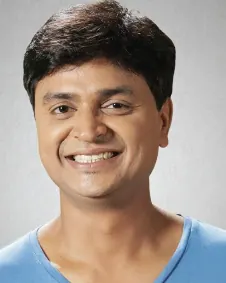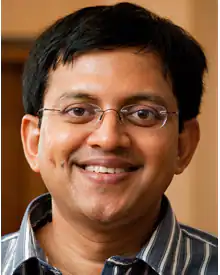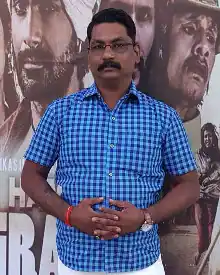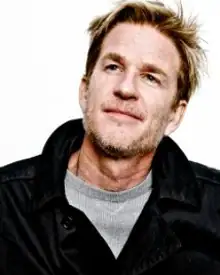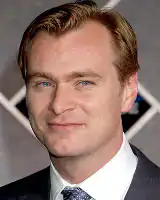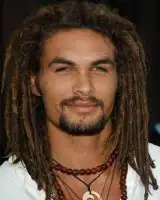X
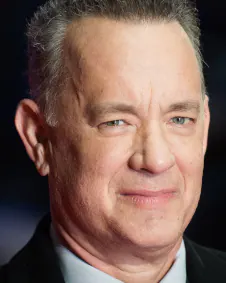
Tom Hanks
Producer/Actor/Screenplay Writer
Biography:
Thomas Jeffrey "Tom" Hanks is an American film actor, film director, voice-over artist, writer and film producer. Hanks worked in television and family-friendly comedies before achieving success as a dramatic actor portraying several notable roles, including Andrew Beckett in Philadelphia, the title role in Forrest Gump, Commander James A. Lovell in Apollo 13, Captain John H. Miller in Saving Private Ryan, Michael Sullivan in Road to Perdition, Sheriff Woody in Disney/Pixar's Toy Story, and Chuck Noland in Cast Away. Hanks won back-to-back Oscars for Best Actor in 1993-94 and is the third most successful actor in terms of box office totals, which exceed $3.3 billion. Early life Hanks was born in Concord, California. His father, Amos Mefford Hanks (born in Glenn County, California on March 4, 1924 – died in Alameda, California on January 31, 1992), was a distant relation of President Abraham Lincoln's mother Nancy Hanks. His mother, Portuguese-American Janet Marylyn Frager (born in Alameda County, California on January 18, 1932), was a hospital worker; the two divorced in 1960. The family's three oldest children, Sandra, (now Sandra Hanks Benoiton, a writer), Larry (now Lawrence M. Hanks, Ph.D., an entomology professor at the University of Illinois at Urbana-Champaign) and Tom went with their father, while the youngest, Jim, now an actor and film maker, remained with his mother in Red Bluff, California. Afterwards, both parents remarried. The first stepmother for Sandra, Larry, and Tom came to the marriage with five children of her own. Hanks once told Rolling Stone magazine: "Everybody in my family likes each other. But there were always about fifty people at the house. I didn't exactly feel like an outsider, but I was sort of outside it." That marriage ended in divorce after just 2 years. Amos Hanks became a single parent, working long hours and relying on the children to fend for themselves often, an exercise in self-reliance that served the siblings well. In school, Hanks was unpopular with students and teachers alike, telling Rolling Stone magazine: "I was a geek, a spaz. I was horribly, painfully, terribly shy. At the same time, I was the guy who'd yell out funny captions during filmstrips. But I didn't get into trouble. I was always a real good kid and pretty responsible." In 1965, Amos Hanks married Frances Wong, a San Francisco native of Chinese descent. Frances had three children, two of whom lived with Tom during his high school years. Tom acted in school plays, including South Pacific, while attending Skyline High School in Oakland, California. Hanks studied theater at Chabot College, and after two years, transferred to California State University, Sacramento. Hanks told the New York Times: "Acting classes looked like the best place for a guy who liked to make a lot of noise and be rather flamboyant. I spent a lot of time going to plays. I wouldn't take dates with me. I'd just drive to a theater, buy myself a ticket, sit in the seat, and read the program, and then get into the play completely. I spent a lot of time like that, seeing Bertolt Brecht, Tennessee Williams, Henrik Ibsen, and all that, and now look at me, acting is my job. I wouldn't have it any other way." It was during his years' studying theater that Hanks met Vincent Dowling, head of the Great Lakes Theater Festival in Cleveland. At Dowling's suggestion, Hanks became an intern at the Festival, which stretched into a three-year experience that covered everything from lighting to set design to stage management. Such a commitment required that Hanks drop out of college, but with this under his belt, a future in acting was in the cards. Hanks won the Cleveland Critics Circle Award for Best Actor for his performance as Proteus in Shakespeare's The Two Gentlemen of Verona, one of the few times he played a villain. Early career In 1979, Hanks packed his bags to New York City, where he made his film debut in the low-budget slasher film He Knows You're Alone and got a part in the television movie Mazes and Monsters. Early in 1979, Hanks was cast in the lead role of Callimaco in the Riverside Shakespeare Company's production of Niccolò Machiavelli's The Mandrake, directed by Daniel Southern. This remains Hanks' only New York stage performance to date; as a high profile Off Off Broadway showcase, the production helped Tom land an agent, Joe Ohla with the J. Michael Bloom Agency. The next year Hanks landed a lead role on the ABC television pilot of Bosom Buddies, playing the role of Kip Wilson. Hanks moved to Los Angeles, where he and Peter Scolari played a pair of young advertising men forced to dress as women so they could live in an inexpensive all-female hotel. Hanks had previously partnered with Scolari in the 1970s game show Make Me Laugh. Bosom Buddies ran for two seasons, and, although the ratings were never strong, television critics gave the program high marks. "The first day I saw him on the set," co-producer Ian Praiser told Rolling Stone, "I thought, 'Too bad he won't be in television for long.' I knew he'd be a movie star in two years." But if Praiser knew it, he was not able to convince Hanks. "The television show had come out of nowhere," best friend Tom Lizzio told Rolling Stone. "Then out of nowhere it got canceled. He figured he'd be back to pulling ropes and hanging lights in a theater." Bosom Buddies and a guest appearance on a 1982 episode of Happy Days ("A Case of Revenge," where he played a disgruntled former classmate of The Fonz) prompted director Ron Howard to contact Hanks. Howard was working on Splash (1984), a romantic comedy fantasy about a mermaid who falls in love with a human. At first, Howard considered Hanks for the role of the main character's wisecracking brother, a role that eventually went to John Candy. Instead, Hanks got the lead role and a career boost from Splash, which went on to become a box-office hit, grossing more than US$69 million. He also had a sizable hit with the sex comedy Bachelor Party, also in 1984. In 1983-84, Hanks made three guest appearances on Family Ties as Elyse Keaton's alcoholic brother, Ned Donnelly. Hanks also appears for a moment as an uncredited extra in the movie Real Genius (1985), when the lead character, Mitch, bumps into him in a crowd. Period of hits and misses Film roles followed, with Splash being his first big hit. With Nothing in Common (1986)—about a young man alienated from his parents who must re-establish a relationship with his father, played by Jackie Gleason—Hanks began to establish the credentials of not only a comic actor but of someone who could carry a serious role. "It changed my desires about working in movies", Hanks told Rolling Stone. "Part of it was the nature of the material, what we were trying to say. But besides that, it focused on people's relationships. The story was about a guy and his father, unlike, say, The Money Pit (1986), where the story is really about a guy and his house." After three more flops, Hanks succeeded with the fantasy Big (1988), both at the box office and within the industry, establishing Hanks as a major Hollywood talent (he was awarded a Golden Globe for this movie). It was followed later that year by Punchline, in which he and Sally Field co-star as a pair of struggling stand-up comedians. Hanks's character, Steven Gold, a failing medical student trying to break into stand-up, was somewhat edgy and complex, offering a glimpse of the far more dramatic roles Hanks would master in films to come. Hanks's next project was the 1989 movie Turner and Hooch. In a 1993 issue of Disney Adventures, Hanks said, "I saw Turner and Hooch the other day in the SAC store and couldn't help but be reminiscent. I cried like a babe." He did admit to making a couple of "bum tickers," however, and blamed his "...deductive reasoning and decision making skills." Hanks had another pile of box-office failures: The 'Burbs (1989), Joe Versus the Volcano (1990), and The Bonfire of the Vanities (1990), as a greedy Wall Street type who gets enmeshed in a hit-and-run accident. Progression into dramatic roles Hanks again climbed back to the top with his portrayal of an unsuccessful baseball manager in A League of Their Own (1992). Hanks admits that his acting in earlier roles was not great and that he has improved. In an interview with Vanity Fair, Hanks notes his "modern era of moviemaking ... because enough self-discovery has gone on.... My work has become less 'pretentiously fake and over the top." This "modern era" welcomed in a spectacular 1993 for Hanks, first with Sleepless in Seattle and then with Philadelphia. The former was a blockbuster success about a widower who finds true love (in the character of Meg Ryan) over the airwaves. Richard Schickel of Time called his performance "charming", and most critics agreed that his portrayal ensured him a place among the premiere romantic-comedy stars of his generation, making him bankable. In Philadelphia, Hanks played a gay lawyer with AIDS who sues his firm for discrimination (Hanks lost thirty-five pounds and thinned his hair in order to appear sickly for the role). In a review for People, Leah Rozen stated "Above all, credit for "Philadelphia's" success belongs to Hanks, who makes sure that he plays a character, not a saint. He is flat-out terrific, giving a deeply felt, carefully nuanced performance that deserves an Oscar." Hanks won the 1993 Academy Award for Best Actor for his role in Philadelphia. During his acceptance speech he revealed that his high school drama teacher Rawley Farnsworth and former classmate John Gilkerson were gay.[8] The revelation inspired the 1997 film In & Out, starring Kevin Kline as an English Literature teacher who is outed by a former student in a similar way. Hanks followed Philadelphia with the 1994 summer hit Forrest Gump, and stated: "When I read the script for Gump, I saw it as one of those kind of grand, hopeful movies that the audience can go to and feel ... some hope for their lot and their position in life... I got that from the movies a hundred million times when I was a kid. I still do." Hanks won his second Best Actor Academy Award for his role in Forrest Gump, becoming only the second actor to have accomplished the feat of winning back-to-back Best Actor Oscars. (Spencer Tracy was the first, winning in 1937-38. Hanks and Tracy were the same age at the time they received their Academy Awards: 37 for the first and 38 for the second.) Hanks's next project reunited him with Ron Howard in the 1995 movie Apollo 13, in which he played astronaut and commander James Lovell. Critics generally applauded the film and the performances of the entire cast, which included actors Kevin Bacon, Bill Paxton, Gary Sinise, Ed Harris, and Kathleen Quinlan. The movie also earned nine Academy Award nominations, winning two. The same year, Hanks starred in the animated blockbuster Toy Story as the voice of Sheriff Woody. Directing, producing and acting Hanks turned to directing with his movie That Thing You Do! about a 1960s pop group, also playing the role of a music producer. Hanks and producer Gary Goetzman went on to create Playtone, a record and film production company named for the record company in the film. Hanks executive produced, co-wrote, and co-directed the HBO docudrama From the Earth to the Moon. The twelve-part series chronicles the space program from its inception, through the familiar flights of Neil Armstrong and Jim Lovell, to the personal feelings surrounding the reality of moon landings. The Emmy Award-winning US$68 million project was one of the most expensive ventures taken for television. Hanks' next project was no less expensive. For Saving Private Ryan he teamed up with Steven Spielberg to make a film about D-Day, the landing at Omaha Beach, and a quest through war-torn France to bring back a soldier who has a ticket home. It earned the praise and respect of the film community, critics, and the general public; it was labeled one of the finest war films ever made, earning Spielberg his second Academy Award for direction and Hanks a Best Actor nomination. Later in 1998, Hanks re-teamed with his Sleepless in Seattle co-star Meg Ryan for another romantic comedy, You've Got Mail, a remake of 1940's The Shop Around the Corner, which starred James Stewart and Margaret Sullavan. In 1999, Hanks starred in an adaptation of Stephen King's novel The Green Mile. He also returned as the voice of Woody in Toy Story 2. The following year he won a Golden Globe for Best Actor and an Academy nomination for his portrayal of a marooned FedEx systems analyst in Robert Zemeckis's Cast Away. In 2001, Hanks helped direct and produce the acclaimed HBO mini-series Band of Brothers. He also appeared in the September 11 television special America: A Tribute to Heroes and the documentary Rescued From the Closet. Next he teamed up with American Beauty director Sam Mendes for the adaptation of Max Allan Collins's and Richard Piers Rayner's graphic novel Road to Perdition, in which he played an anti-hero role as a hitman on the run with his son. That same year, Hanks collaborated with director Spielberg again, starring opposite Leonardo DiCaprio in the hit crime comedy Catch Me if You Can, based on the true story of Frank Abagnale, Jr. The same year, he and wife Rita Wilson produced the hit movie My Big Fat Greek Wedding. In August 2007, he along with co-producers Rita Wilson and Gary Goetzman, and writer and star Nia Vardalos, initiated a legal action against the production company Gold Circle Films for their share of profits from the movie. At the age of 45, he became the youngest ever recipient of the American Film Institutes's Life Achievement Award on June 12, 2002. Hanks was absent from the screen in 2003; in 2004, he appeared in three films: The Coen Brothers' The Ladykillers, another Spielberg helmed film, The Terminal, and The Polar Express, a family film from Robert Zemeckis. In a USA Weekend interview, Hanks talked about how he chooses projects: " A League of Their Own, it can't be just another movie for me. It has to get me going somehow.... There has to be some all-encompassing desire or feeling about wanting to do that particular movie. I'd like to assume that I'm willing to go down any avenue in order to do it right". In August 2005, Hanks was voted in as vice president of the Academy of Motion Picture Arts and Sciences. Hanks next starred in the highly anticipated film The Da Vinci Code, based on the bestselling novel by Dan Brown. The film was released May 19, 2006 in the US and grossed over US$750 million worldwide. In Ken Burns's 2007 documentary "The War", Hanks did voice work, reading excerpts from World War II-era columns by Al McIntosh. In 2006, Hanks topped a 1,500-strong list of 'most trusted celebrities' compiled by Forbes magazine. Hanks next appeared in a cameo role as himself in The Simpsons Movie, in which he appears in an advertisement claiming that the US government has lost its credibility and is hence buying some of his. He also makes an appearance in the credits, stating that he wishes to be left alone when he is out in public. In 2007, Hanks starred in Mike Nichols' film Charlie Wilson's War (written by acclaimed screenwriter Aaron Sorkin) in which he plays Democratic Texas Congressman Charles Wilson. The film opened on December 21, 2007 and Hanks got a Golden Globe nomination for his acting. In a play on the expression "art imitating life", Hanks was going to play an on screen dad to a young man (Hanks' real-life son, Colin Hanks) who chooses to follow in the footsteps of a fading magician (John Malkovich) in The Great Buck Howard. Hanks' character was less than thrilled about his son's career decision. A film adaptation of Angels & Demons, the prequel to The Da Vinci Code, had been announced, and on April 11, 2007 it was revealed that Hanks was going to reprise his role as Robert Langdon and that he would've reportedly received the highest salary ever for an actor. Personal life Hanks was married to Samantha Lewes from 1978 to 1987. The couple had two children, son Colin Hanks (now also an actor) and daughter Elizabeth Ann. In 1988, Hanks married actress Rita Wilson; raised in several different Christian denominations, Hanks converted from Roman Catholicism to Eastern Orthodox Christianity when marrying Wilson. The two first met on the set of Hanks's television show Bosom Buddies but later developed a romantic interest while working on the film Volunteers. They have two sons: Chester, or "Chet" (who has a small part as a student who asks Dr. Jones a question at the end of the college chase in Indiana Jones and the Kingdom of the Crystal Skull), and Truman. Politics A proponent of environmentalism, Hanks is an investor in electric vehicles, and owns both a Toyota RAV4 EV hybrid and the first production AC Propulsion eBox. Hanks gives money to many Democratic politicians and has been open about his support for same-sex marriage, environmental causes and alternative fuels (Hanks was an owner of the electric car before it was recalled, as chronicled in the documentary Who killed the Electric Car?). Hanks made public his candidate choice in the 2008 election when he uploaded a video to his MySpace account in which he announced his endorsement of Barack Obama. Hanks was extremely public with his opinion and opposition to Proposition 8 that amended the California constitution to define marriage as a union only between a man and a woman. Hanks and those in opposition raised over USD$44 million in contrast to the supporters' $38 million , but 52% of the California voters were for Prop 8. Hanks went on to blame supporters of Prop 8 as un-American and attacked the LDS (Mormon) church members—major proponents of the bill—for their views on marriage and their role in supporting the bill.] About a week later, Hanks apoligized for the remark, saying that nothing is more American thank voting one's conscience, and that is what the supporters of Prop 8 did. Other activities A fan of NASA's manned space program, Hanks said that he originally wanted to be an astronaut but "didn't have the math." Hanks is a member of the National Space Society, serving on the Board of Governors of the nonprofit educational space advocacy organization founded by Dr. Wernher Von Braun and was the producer of the HBO miniseries From the Earth to the Moon about the Apollo program to send astronauts to the moon. In addition, Hanks co-wrote and co-produced Magnificent Desolation: Walking on the Moon 3D, an IMAX film about the moon landings. Hanks also provided the voice over for the first new planetarium show following the opening of the new Rose Center for Earth & Space in the Hayden Planetarium at the American Museum of Natural History in New York. In June 2006 Hanks was inducted as an honorary member of the United States Army Rangers Hall of Fame for his accurate portrayal of a Captain in the movie Saving Private Ryan; Hanks, who was unable to attend the induction ceremony, was the first actor to receive such an honor. In addition to his role in Saving Private Ryan, Hanks was cited for serving as the national spokesperson for the World War II Memorial Campaign, for being the honorary chairperson of the D-Day Museum Capital Campaign, and for his role in writing and helping to produce the Emmy Award-winning miniseries, Band of Brothers. Hanks is one of several celebrities who frequently participate in planned comedy bits on Late Night with Conan O'Brien while they are guests. On one visit, Hanks asked Conan to join his run for president on the "Bad Haircut Party" ticket, with confetti and balloons and a hand held sign with the slogan "You'd be stupid to vote for us". On another, O'Brien, noting that Hanks was missing Christmas on his promotional tour, brought the season to him, including a gift (the skeleton of Hooch), and a mass of snow burying them both. On yet another episode, Conan gave Hanks a painting he had commissioned reflecting two of his interests: Astronauts landing on the beach at Normandy. On March 10, 2008, Hanks was on hand at the Rock & Roll Hall of Fame to induct sixties sensation The Dave Clark Five. He praised the group for both the joy of their music and for never signing away their publishing rights. Hanks is working on the next film in the Toy Story franchise, Toy Story 3, reprising his role as Sheriff Woody, scheduled for release in 2010. Hanks is a confessed fan of English Premier League Football club, Aston Villa and was presented with a shirt on a TV show with the print 'Hanks 1' on the back.
Read More
Tom Hanks Movies
| Movie | Director | |
|---|---|---|
|
|
Marielle Heller | 17 Jan 2020 |
|
|
Aaron Schneider | 10 Jul 2020 |
|
|
Josh Cooley | 21 Jun 2019 |
Tom Hanks: Personal Details
Tom Hanks |
|
| Name | Tom Hanks |
| Profession(s) |
Main Profession Other Profession |
| Date Of Birth | 09 Jul 1956 |
| Age | 68 |
| Birth Place | Concord, California |
| Current Residence | |
| Religion | |
| Nationality | |
| Height | |
| Zodiac Sign | |
| Hobbies | |
Tom Hanks Net Worth |
|
| Net Worth | |
Frequently Asked Questions (FAQs) About Tom Hanks
-
What is Tom Hanks's age?
The age of Tom Hanks in the 2024 was 68.
-
Where was the Tom Hanks born?
The Tom Hanks's was born in Concord, California.
-
What is the Tom Hanks date of birth?
The DOB for Tom Hanks was 09 Jul 1956.
-
What is Tom Hanks's latest movie?
The most recent movies for Tom Hanks is A Beautiful Day in the Neighborhood.
Tom Hanks News
-
 Armaan Malik Joins Forces With Calum Scott For Heartfelt Love Ballad 'Always'
Armaan Malik Joins Forces With Calum Scott For Heartfelt Love Ballad 'Always' -
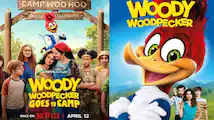 Woody Woodpecker Goes To Camp Full Movie Leaked Online In HD For Free Download..
Woody Woodpecker Goes To Camp Full Movie Leaked Online In HD For Free Download.. -
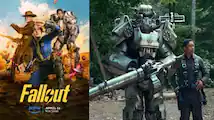 Fallout Season 1 Full Episodes Leaked Online In HD For Free Download Hours Aft..
Fallout Season 1 Full Episodes Leaked Online In HD For Free Download Hours Aft.. -
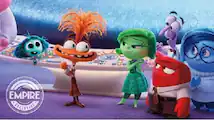 Inside Out 2 Poster: As Anxiety Meets Other Emotions, Maya Hawke Reveals She C..
Inside Out 2 Poster: As Anxiety Meets Other Emotions, Maya Hawke Reveals She C.. -
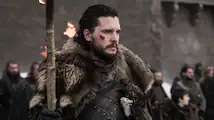 Kit Harington Reveals The REAL Reason On Why Game Of Thrones’ Jon Snow Spin Of..
Kit Harington Reveals The REAL Reason On Why Game Of Thrones’ Jon Snow Spin Of.. -
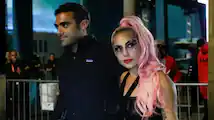 Is Lady Gaga Engaged To Bf Michael Polansky? Singer Sparks Rumors After Being ..
Is Lady Gaga Engaged To Bf Michael Polansky? Singer Sparks Rumors After Being ..
Celeb Birthdays
-
Satish Kaushik Apr 13
-
Manvita Kamath Apr 13
-
Saikumar Apr 14
-
John Gielgud Apr 14
-
Vipul Goyal Apr 14
-
Babu Gogineni Apr 14
-
Vikas Ingle Apr 14
Celebs In Spotlight
Enable




 Click it and Unblock the Notifications
Click it and Unblock the Notifications



